El Dorado County 1949
The rain started suddenly and unexpectedly about three o'clock. The sky turned a pale muddy brown, bringing shadows into the room. A brief smattering of very large drops gave warning at the south window and then the entire sky opened up like a sieve. The rain descended with a startling ferocity, rattling on the corrugated tin roof of the pantry like a snare drum. For five minutes it fell so hard they couldn't hear each other speak. They stood at the window and watched it come down. The brindled hound looked startled and walked under an azalea bush.
“That dog! He does not have the sense that God gave a goose,” observed Louvina.
“I best be getting on back,” Bartle said. “I thank you, Louvina, for allowing me to visit you today. I didn't mean to stay so long and take up your time. I'll be here on Tuesday to fix that cistern cover, and you go ahead and get that linoleum ordered. We will get it down in no time. Laying his hand on her shoulder, he hurriedly went to get his coat and hat.
“Nonsense, Bartle Clunes. You are not walking home in this deluge!” exclaimed Louvina. “We'll take the truck. I am happy to drive you home. Won't take twenty minutes to go around there.” She grabbed the galoshes that were standing near the door, and pulled them on with gusto.
“No, no. I couldn't ask you to do that!” he protested. “A little rain never hurt anybody. It is only a three-mile walk across that hill. It'll do me good.”
She paid him no mind. “Let's go out to the shed and fire her up. That truck hasn't been out for a long while,” she said with surprising enthusiasm. She rummaged in a drawer for a key, took her brown canvas barn coat from the peg and jammed on her head a green knitted cap with the word *DEERE* worked in across the cuff. She made sure her stove was off and pulling him to the back door by his sleeve, ran out into the rain. They were drenched before they made it to the shelter of the shed.
“This was Calum's old truck,” she said excitedly. “It's a '35 Studebaker. It's the first vehicle I have ever owned, and though I am aware it is an eyesore, I feel about sixteen years old when I get in behind the wheel!”
To tell the truth, there was no surface on that truck larger than ten square inches that was not dented. It sat slightly lower on the right side than on the left, the springs having evidently succumbed asymmetrically to the force of gravity. Originally it was a dark green, but pieces of the exterior had been replaced over the years. It now looked like patchwork. One fender was shiny gray, one was dull brown, and the bed was the color of cheese. The large quantity of red parts was mostly rust.
She yanked open the door, which buckled and screeched from sitting damp for too long a time. The brindled hound came tearing around the corner of the shed at the sound and bounded up into the driver's seat, smearing mud everywhere.
“Scoot on over Maggie,” Louvina yelled, and gave him a shove that landed him mostly on Bartle's lap. The inside of the truck had the heady aroma of fourteen years of stale cigarette smoke, mummified mouse, wet fur, dog breath and petroleum.
“Louvina, the gas fumes in here are so powerful they leave a taste on the back of my tongue. We’ll have to fix that right off if you plan on driving this thing anywhere serious,” he warned. He had to roll down the window, no matter if a hurricane was coming.
Bartle slid himself over right up next to the door to make room for Maggie's front paws someplace other than on his crotch. “Why in heaven's name is this dog called Maggie when it is obvious he is of the male persuasion?” asked Bartle.
“Calum named him Magnus when he was just a pup,” explained Louvina, “before the dog's true nature was revealed. But it is just too burdensome a name for a hound of dubious ancestry to live up to, don't you think? He answers to Maggie all right. Actually, he will answer to Susan if you have a bacon biscuit in your hand,” she laughed, working to get the key into the ignition.
After three tries and a lot of grinding on the part of the starter, the dormant engine was recalled to life. In her zeal, Louvina had possibly pumped the accelerator a few times too many. There was a minor explosion, and a disconcerting plume of black smoke discharged from the tail pipe.
“Bartle”, she said, looking into his brown eyes, “I have no driver's license, and I confess I haven't actually driven this truck anywhere much. I am still learning to wind my way through these gears, but I am fully confident I can get you home alive … sometime before noon tomorrow!” she shouted, laughing again. “Now the windshield wiper switch. Where is that?”
What she did not tell him was that she absolutely had to get back home before dark because the truck had no working headlights at the moment. Maggie was sitting up staring out the windshield. He didn't care who was driving, he was ready to go. As for Bartle, he decided to shut up and hang on for the entire five miles.
Following a few faulty experiments in which she tried to find reverse gear without benefit of the clutch, Louvina finally backed slowly out of the shed, dragging quite a long string of ivy that had caught onto the bumper. She forced the gear shift into first and rolled out onto the drive, narrowly missing an old wash tub. Inching forward, the truck lurched like a snake-shy horse. She found second gear eventually. The transmission was dangerously close to surrender.
“I do know where the gears are, Bartle,” she assured him, “but sometimes I can't find them right off. I am not causing any damage to this truck, am I?” she asked.
“Ah... no Louvina,” he said, wincing. “Well, yes, you are a little, but you'll get the hang of it. Just remember that it is a good idea to engage the clutch before you shift, not as an afterthought. It works a little smoother that way. And also you might not want to step on the gas and the clutch at the same time. It is not the most effective maneuver.” He admired her gumption, but he found himself gripping the door handle.
In a few minutes, they were jouncing somewhat erratically down the rutted, unpaved single-track road in the downpour. They were going at a good clip, maybe ten miles an hour - he didn't know, exactly, because the speedometer needle lay quivering at the bottom of the gauge. Louvina hung on to the wheel, looking confident.
“I think I will just stay in second gear,” she announced, “because I know exactly where that one is.” The tires bounced, slipped and slid in and out of the muddy craters, but Louvina seemed on the verge of whistling a tune, she was having so much fun. Maggie's tail was beating time with the wind-shield wipers. He turned and gave Bartle's angular jaw an affectionate drooley lick.
Jesus, Mary and Joseph! Bartle thought. He was getting more religious by the mile.
Going up and over the hill from Louvina's land to Bartle's was less than an hour’s walk. The road, however, took a more circuitous route, meandering nearly five miles through the softly folded hills before it wound back around to the north side and the track onto his property. The foothills were beautiful even in the wet gray light. Hundreds of round topped valley oaks gathered in convivial bunches on the rises. Bay laurels flanked both sides of the road, standing tall, their feet wading in the grass, leaves exhaling a clean, medicinal fragrance. Large metamorphic boulders jutted up out of the soil here and there, giving texture to the broad fields. Weathered wooden fence posts leaned this way and that, like lazy musical staves.
The sky darkened again and the rain began to come down with a vengeance. There was a far off rumble of thunder, a flash of lightning. The windshield wipers could not keep up. Louvina leaned forward to see through the glass.
Bartle yelled, “Why don't you pull on over at the next wide place in the road, Louvina. We best wait out this rain for a time.” She would not have let on, but she was glad for the suggestion. She soon found a track turning to the right that ran up the hill, the entry secured by a gate. She pulled up in front of that, brakes squealing, and turned off the motor.
“Whew,” she said, “Good idea. That was a little more excitement than my heart could stand!”
They sat quietly for a few minutes, amazed by the volume of water that continued to fall. Maggie emitted an anxious whine; rain or no rain, he wanted out. Bartle opened the door and the dog leapt over his lap. He snuffled around the fence line for anything that might be of interest. A small congregation of odd black and white cows was standing out in the wet. Maggie stopped, looking at them warily. He may have never seen a cow before, but he knew they were too large to reckon with.
“Look at those animals, Bartle. I have never seen the like.” The cows were solid black except for a wide white band around their mid-section that appeared painted on. “Looks like they are wearing pajamas!”
“Galloway Belties,” Bartle said. “Come from Scotland. Not many of that breed around. Beneath that beautiful exterior, Louvina, is a very useful animal,” he told her. “They don't mind a cold winter — they grow that shaggy coat. Then in the summer, they shed the coat and can tolerate the heat better than most bovines.”
“Lands sake! How do you know about cows, Bartle Clunes?” she asked. “Did your family have cattle?”
“I am from Wyoming, a place called Pine Bluffs, down in Laramie County. When you are born in Wyoming, you know about cattle, period, whether you want to or not. My grandfather came out west with his family in the 1880s. They claimed some free homestead land near a place called Lodge Pole Creek, and built a home. My family ran cattle for over seventy years. They expected me to stay, only I didn't. The only Clunes' left out there now are my brother's two grown boys. I haven't been back there for a long while.”
After that surprisingly long piece of personal history on Bartle's part, both sat quietly. They watched the cows wander about the hillside, and bided their time until the rain abated.
“Why don't you let me drive the last two miles,” Bartle offered. I'll jump out and come around.” He whistled for Maggie, who had wandered about a quarter mile up the fence. The dog trotted back and was relegated to ride outside in the bed the rest of the way. “A dog that wet and muddy and … pungent,” said Bartle, “cannot share a seat with humans, no more than a skunk! There is a limit and that boy has reached it!”

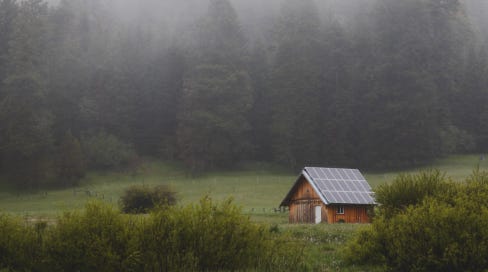



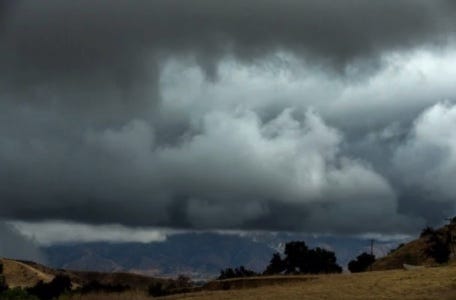
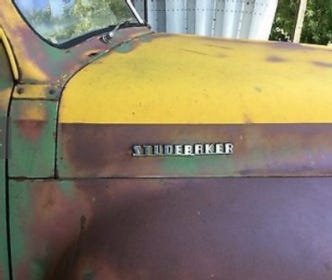
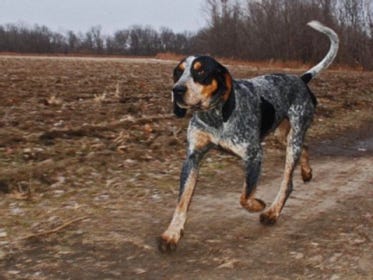
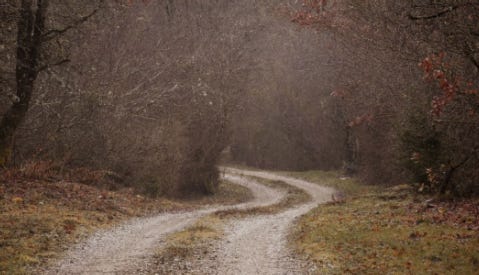
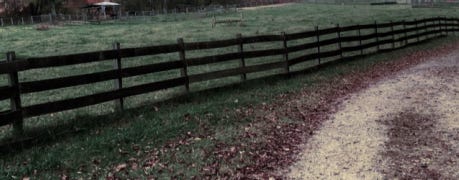

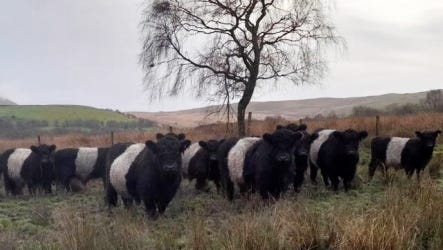
I love this. It's right up my alley. This is the kind of story I can sink into and read easily. Keep it up!
Love these two. I grew up in a subdivision that had streets named after car companies. I lived on Studebaker street.